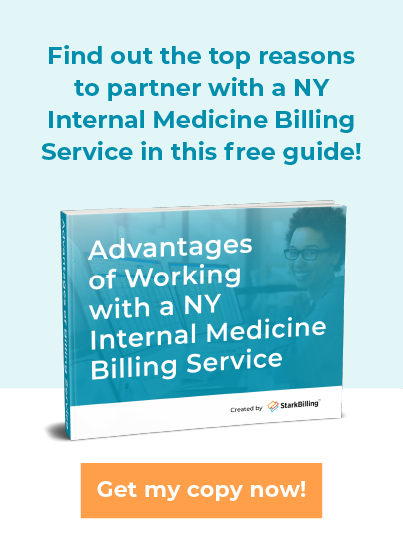Geriatric medicine is a specialty dedicated to the health and well-being of older adults, and it’s becoming increasingly vital as the population ages. The complexities of geriatric care involve managing multiple chronic conditions, providing comprehensive assessments, and coordinating long-term care plans. Given these unique demands, accurate medical billing and coding must ensure that geriatric practices receive proper reimbursement for their services.
In New York, where the elderly population is significant, precise medical billing and coding are crucial. Coding errors or inaccurate documentation can lead to claim denials, delayed payments, and financial instability for practices. This comprehensive guide covers the intricacies of geriatric medical billing and coding, focusing on how New York practices can navigate these challenges effectively.
Understanding Geriatric Medical Billing and Coding
Geriatric medicine focuses on the healthcare needs of older adults, typically those over sixty-five. The scope of care often entails managing chronic diseases like hypertension, diabetes, dementia, arthritis, and heart disease. It also involves preventative measures, cognitive and functional assessments, and end-of-life care.
Common conditions and services provided in geriatric care include:
- Chronic disease management: Handling multiple conditions, such as heart disease, diabetes, and osteoporosis
- Preventive care: Screenings for cancer, osteoporosis, cognitive decline, etc.
- Palliative and hospice care: Focused on improving the quality of life for patients with severe, chronic, or terminal conditions
Medical billing is the process of submitting and following up on claims to ensure that healthcare providers are reimbursed for their services. Coding involves translating medical procedures, diagnoses, and equipment into universal alphanumeric codes, which insurance companies use to process claims.
In geriatric medicine, coding and billing capture the vast array of services provided to older patients. From regular office visits to chronic disease management and specialized assessments, coders need to accurately reflect the care provided in order to ensure proper reimbursement. Given the complexity of geriatric care, coding must be meticulous, as errors can lead to denials, audits, and compliance issues.
The Key Components of Geriatric Medical Billing
Current Procedural Terminology (CPT) codes are standardly used to describe medical procedures. In geriatric care, these can include codes for routine office visits, home visits, preventive services, and chronic care management. Commonly used CPT codes in geriatrics include:
- 99213: Office or other outpatient visits for established patients
- 99341-99350: Home health visits
- 99495-99496: Transitional care management services
International Classification of Diseases, 10th Edition (ICD-10), codes are used to describe diagnoses. For geriatric medicine, these cover a wide range of conditions that frequently affect the elderly, including:
- E11: Type 2 diabetes mellitus
- I10: Essential hypertension
- M81: Osteoporosis without current pathological fracture
- F03: Unspecified dementia
Healthcare Common Procedure Coding System (HCPCS) codes are used primarily for services, supplies, and products not covered by CPT codes, such as durable medical equipment or medications administered during outpatient visits. In geriatric care, HCPCS codes are often used for services like:
- G0438: Initial annual wellness visit
- E0100: Cane, standard
Accurate coding directly impacts a practice’s reimbursement. Using the wrong codes or leaving out essential modifiers can lead to underpayment, while coding errors might trigger denials or audits. For example, not using the proper modifier to indicate a follow-up visit could result in a rejected claim.
Errors in coding can have serious consequences for geriatric practices. These may include:
- Claim denials: If a claim is submitted with incorrect or missing codes, it may be denied.
- Delayed payments: Billing errors slow the reimbursement process, which can affect a practice’s cash flow.
- Financial penalties: In some cases, incorrect coding could lead to audits and fines.
Challenges in Geriatric Medical Billing
Geriatric patients often have multifaceted healthcare needs, including managing multiple chronic conditions and coordinating care between various specialists. Billing can therefore become complex, as each condition needs to be accurately reflected through proper coding.
The chronic conditions often seen in elderly patients require ongoing treatment and multiple follow-up visits. Comorbidities (having more than one chronic condition) complicate the billing process, as coders must ensure that all aspects of care are accurately captured.
Complete and accurate documentation is vital in geriatric billing. Poor documentation leads to incorrect coding, which can cause claims to be denied. Proper documentation is essential in proving that the services billed were medically necessary, which is a crucial requirement for Medicare and most other insurance providers.
In New York, geriatric practices must deal with a wide range of insurance plans, each with specific requirements. Medicare, Medicaid, and private insurers all have different billing rules. Understanding and following these precisely ensures that claims are paid on time.
Medicare and Medicaid, two of the most common payers for geriatric care, have specific sets of challenges. Both have stringent billing guidelines, and coding errors can lead to payment delays, claim denials, or audits. In particular, Medicare’s medical necessity requirement adds a layer of complexity to geriatric billing.
Best Practices for Geriatric Medical Billing and Coding
Choosing the correct codes is essential for receiving accurate reimbursement. It’s important to take the time to review the patient’s history, the services provided, and any other relevant factors to ensure that all billable services are coded accurately.
Modifiers are two-character codes added to CPT codes to provide additional information about the service performed. In geriatric medicine, using modifiers correctly is essential, especially when dealing with multiple visits, prolonged services, or follow-up care. Since guidelines frequently change, medical coders must stay updated on the latest coding changes. Continuous education ensures that staff remain compliant with the latest regulations, policies, and best practices.
EHRs play a significant role in streamlining the billing process. By integrating coding with practice management software, geriatric practices can ensure that all patient information is easily accessible and that coding is as accurate as possible. EHRs can also assist in tracking patient visits and treatments, making documentation more thorough.
Medical coding software can help reduce errors by automatically suggesting codes based on the treatment provided. These tools also improve efficiency by ensuring that coding is done quickly and accurately, freeing up time for coders and billing staff to focus on other tasks.
Compliance and Regulatory Considerations
Geriatric practices in New York must adhere to federal regulations regarding medical billing. For instance, Medicare has stringent guidelines for coding, and practices must ensure that they meet these requirements to avoid audits or penalties.
Remaining compliant with federal regulations is crucial to avoiding audits and penalties. Practices must ensure that all claims are coded accurately and follow all insurance requirements. Failing to do so could result in lost revenue, fines, or even criminal charges in cases of fraud.
To minimize errors, practices should conduct regular internal audits and review their billing processes. Ensuring that all coding staff are properly trained and that there are clear guidelines for coding and billing can help reduce the risk of errors.
Final Note
Accurate medical billing and coding are critical to the success of any geriatric practice. In New York, ensuring compliance and minimizing errors is especially important. By implementing best practices, investing in ongoing education for staff, and utilizing the right technology, geriatric practices can improve their billing accuracy, reduce claim denials, and enhance their financial health.
Investing in professional medical billing services like those offered by StarkBilling can further streamline operations and ensure that your practice remains compliant with all regulations.
Capture more revenue, and grow your New York procedural-based practice with a specialized medical billing partner that has in-depth knowledge of the coding requirements for all your diverse procedures. Our tailored solutions aim to enhance coding accuracy, reduce denials, and expedite payments. Schedule a free consultation now.






